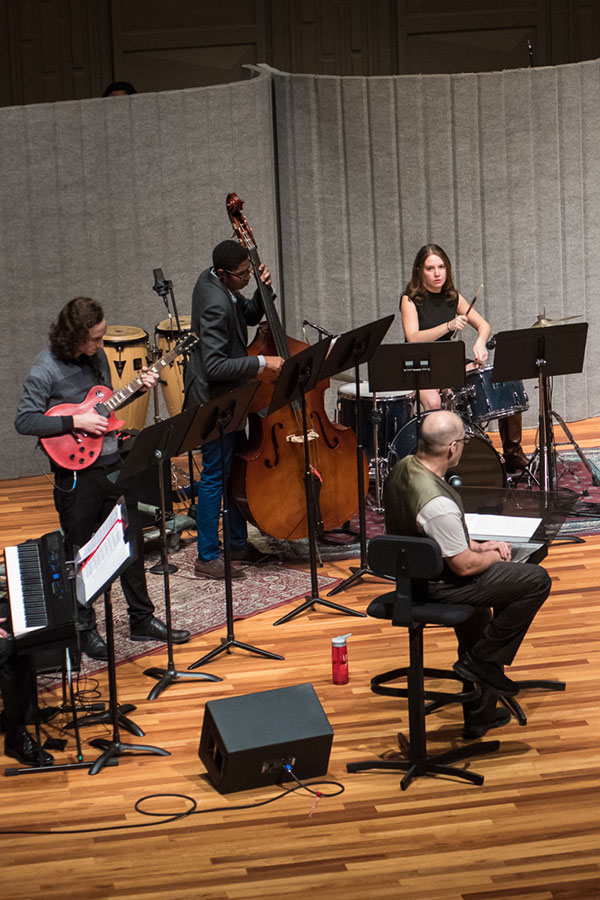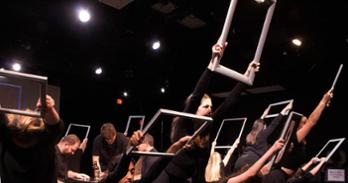You are here: American University College of Arts & Sciences Performing Arts Music BA Degree
Music Curriculum
View 4-Year Plan example and Degree Requirements below.
Our faculty are committed to mentoring you through the many opportunities of the program, the campus, and the city. Take advantage of all the Music Program and the University has to offer: compete for research grants, travel internationally with our ensembles, or intern with partners beyond the classroom like the Washington National Opera. We pride ourselves on giving you world-class professional opportunities and contacts while you explore the depths of studying Music in American University's liberal arts tradition. Features of our program include:
- Experience in multiple genres and a community invested in your success
- Classes small enough for personal attention, big enough for the robust exchange of ideas, offering you the opportunity to develop to your highest potential
- Specialized upper-level courses chosen in consultation with your dedicated faculty mentor
- Flexible degree requirements allowing you to combine your love of music with many other degree programs across the campus
Play Out Your Degree
A Sample 4-Year Plan for the BA in Music
Semester One
Lessons
Ensembles
Theory I
Musicianship I
Semester Two
Lessons
Ensembles
Introductory Colloquium
Theory II
Musicianship II
Semester Three
Lessons
Ensembles
Theory III
Music History II
Semester Four
Lessons
Ensembles
Music History I
Pick your specialty area
Semester Five
Lessons
Ensembles
Advanced Concentration Elective*
Semester Six
Study Abroad
Music Elective
Music Elective
Semester Seven
Lessons
Ensembles
Senior Colloquium
Advanced Concentration Elective*
Semester Eight
Capstone project (recital, research paper, or other special project in student's specialty area)
Advanced Concentration Elective*
Determining Your
Specialty Area
By the end of sophomore year, music majors will have a clear idea of how they want to focus the balance of their undergraduate work in Music. Based on this decision, they will work with a faculty mentor from the Music Program to realize their goals. For example, students with aspirations in the performance area would develop and present their work in concerts. Students interested in the history, theory, and culture of music may choose to research, write, and present an extensive paper in their research area. Students who double major may combine their interests in a research, performance, or compositional project. In every case, students and faculty customize their work within the major to meet the artistic, academic, and professional goals of each student. Specialties include, but are not limited to: performance, composition, ethnomusicology, music history, arts management, theory, music journalism, business and entertainment and music, audio tech and music etc.
*Advanced Concentration Electives are courses that specialize in upper level music areas. They are divided into Advanced Concentration in Music Analysis and Performance and Advanced Concentration in Music History and Ethnomusicology


